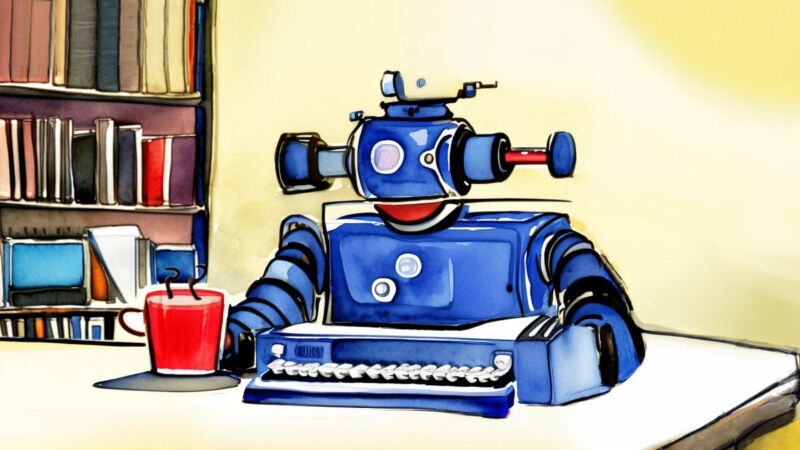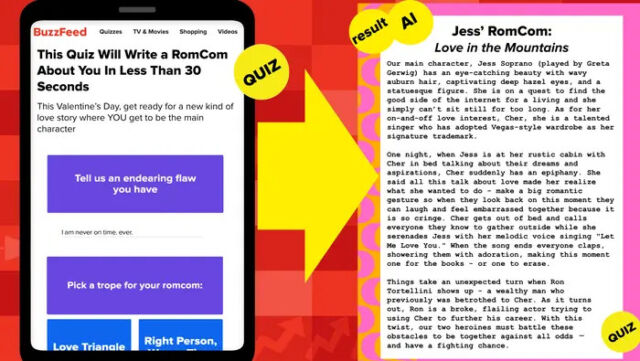
reader comments
106 with 0 posters participating
On Thursday, an internal memo obtained by The Wall Street Journal revealed that BuzzFeed is planning to use ChatGPT-style text synthesis technology from OpenAI to create individualized quizzes and potentially other content in the future. After the news hit, BuzzFeed’s stock rose 200 percent. On Friday, BuzzFeed formally announced the move in a post on its site.
“In 2023, you’ll see AI inspired content move from an R&D stage to part of our core business, enhancing the quiz experience, informing our brainstorming, and personalizing our content for our audience,” BuzzFeed CEO Jonah Peretti wrote in a memo to employees, according to Reuters. A similar statement appeared on the BuzzFeed site.
The move comes as the buzz around OpenAI’s ChatGPT language model reaches a fever pitch in the tech sector, inspiring more investment from Microsoft and reactive moves from Google. ChatGPT’s underlying model, GPT-3, uses its statistical “knowledge” of millions of books and articles to generate coherent text in numerous styles, with results that read very close to human writing, depending on the topic. GPT-3 works by attempting to predict the most likely next words in a sequence (called a “prompt”) provided by the user.
In particular, BuzzFeed told Reuters that it will not utilize ChatGPT itself, but instead will craft a custom implementation based on OpenAI’s GPT-3 technology: “We are not using ChatGPT—we are using OpenAI’s publicly available API (application programming interface).”

In light of recent news that CNET has been publishing AI-written articles (causing an ongoing controversy covered well by Futurism and The Verge), some worry that the move from BuzzFeed may signal a new trend in media toward relying on content produced by machines instead of human writers, especially in the wake of a 12 percent cut in BuzzFeed’s staff late last year. The Wall Street Journal reports that “BuzzFeed remains focused on human-generated journalism in its newsroom,” according to a BuzzFeed spokesperson.
fad in the vein of the “pivot to video” movement that caused so much trouble for media companies between 2015 and 2018. Others compare AI hype to the metaverse, blockchain, and NFT crazes in recent years.
Hype aside, it’s possible that the prospect of AI-powered automation reducing the cost of content creation may be too enticing to ever abandon completely, especially if AI tools improve in quality over time. CNET’s recent misadventure in AI using an internally developed AI engine—the most high-profile AI-authored experiment from a major publication that we know of—has so far been a failure, resulting in articles full of errors and plagiarism. But even after considerable blowback, CNET announced it would “continue embracing” AI-authored content. If the clicks keep coming and it fits its business model, CNET sees no reason to change.
Whether AI tools will ever completely replace human journalists or merely boost their productivity (in the vein of an invention like the typewriter) is an open question that we can’t answer at the moment. Only time will tell as the story of generative AI continues to rapidly unfold.






